Long Hard Road
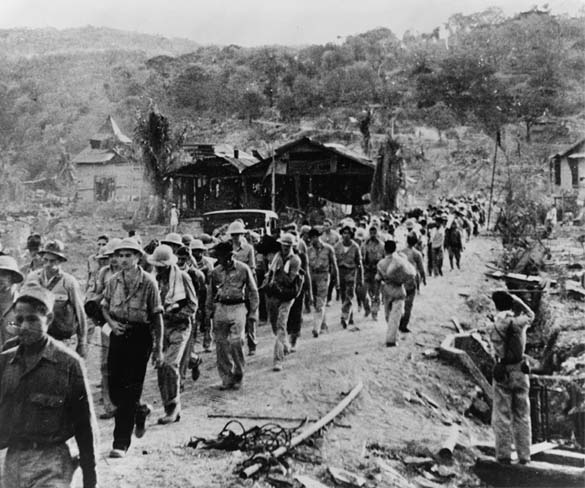
LONG
HARD
ROAD
American POWs
During World War II
THOMAS SAYLOR

Minnesota Historical Society Press
2007 by the Minnesota Historical Society. All rights reserved. No part of this book may be used or reproduced in any manner whatsoever without written permission except in the case of brief quotations embodied in critical articles and reviews. For information, write to the Minnesota Historical Society Press, 345 Kellogg Blvd. W., St. Paul, MN 551021906.
www.mhspress.org
The Minnesota Historical Society Press is a member of the Association of American University Presses.
Manufactured in the United States of America
10 9 8 7 6 5 4 3 2 1
 The paper used in this publication meets the minimum requirements of the American National Standard for Information SciencesPermanence for Printed Library materials, ANSI Z39.481984.
The paper used in this publication meets the minimum requirements of the American National Standard for Information SciencesPermanence for Printed Library materials, ANSI Z39.481984.
International Standard Book Number 13: 978-0-87351-597-9 (cloth)
International Standard Book Number 10: 0-87351-597-8 (cloth)
Library of Congress Cataloging-in-Publication Data
Saylor, Thomas, 1958
Long hard road : American POWs during World War II / Thomas Saylor.
p. cm.
Includes bibliographical references and index.
ISBN-13: 978-0-87351-597-9 (cloth : alk. paper)
ISBN-10: 0-87351-597-8 (cloth : alk. paper)
1. World War, 19391945Prisoners and prisons, German. 2. World War, 19391945Prisoners and prisons, Italian. 3. World War, 19391945Prisoners and prisons, Japanese. 4. World War, 19391945Personal narratives, American. 5. World War, 19391945Concentration campsEurope.
6. World War, 19391945Concentration campsPacific Area. 7. Prisoners of warUnited StatesBiography. 8. Oral history. I. Title.
D805.A2S28 2007
940.547208913dc22 2007021569
Ebook ISBN: 978-0-87351-681-5
Book design by Christopher Kuntze
Composed in Scala and Scala Sans for the text
with Grotesque Condensed for display
Contents

Preface
Captives have been taken for as long as organized warfare has existed. Yet laws guaranteeing decent handling of fighting men who laid down their weapons is a relatively recent idea, little more than a century old. In times past, prisoners sometimes were ransomed; at other times they ended up as slaves or simply were killed.
The origins of regulated, humane treatment of prisoners in the west came in the aftermath of the 1850s Crimean War and 1860s American Civil War. Wholesale and needless suffering during those conflicts attracted the attention of determined reformers. Their work culminated in the Hague Conventions of 1899 and 1907 and more specifically in the Geneva Convention of 1929. By 1939 this latter document, which contained specific provisions governing the treatment of captured enemy combatants, had been signed and ratified by all principal warring powersthe only exceptions being the Soviet Union and Japan.
Military campaigns during World War II swept across continents, and almost all nations, including the United States, saw large numbers of their armed men taken prisoner. During 194145, more than 110,000 American marines, soldiers, airmen, and sailors were captured by the forces of Germany, Italy, and Japan. These men languished in prisoner of war camps large and small, and some endured unspeakable hardships. The treatment in some camps followed the 1929 Geneva Convention, while in others its articles were crassly ignored and men mistreated, abused, and killed. Between 12,000 and 14,000 American POWs did not survive their time in captivity.
Yet despite the scale of this tragedy, and of the crimes responsible for it, comparatively little research has been done and hardly any narrative histories have been published on this subject. Few efforts have been made to research and publicize the hundreds of POW camps that once dotted the continents. Little visual evidence exists, either: camp locations worldwide have virtually disappeared. Visitors to Germany can tour several concentration camp sites, but of the numerous former POW camps, none remainmerely a handful of markers or plaques to indicate what existed there during 193945. In Japan, nothing remains at all; the historical slate has been wiped clean. We thus face the risk that this enormous human catastrophe will simply fade away after the last survivors die. Long Hard Road is a contribution to the ongoing attempt to ensure this does not happen.
This book emerged from a 2005 oral history volume I authored about the human experience during World War II. That book, Remembering the Good War, assembled and presented a broad representative sample of the experiences of Minnesota women and men, civilians and service veterans, during 194145 and the immediate postwar period. In conducting interviews for that project, I spoke with nearly 140 people throughout the state and collected much interesting and valuable data. Early on, I interviewed several prisoners of war, from Europe as well as from the Pacific. It immediately was clear that their range of experiences was far beyond what Remembering the Good War sought to document, whether during or after the war.
Yet these were compelling, at times tragic stories, important chapters of World War II that needed to be part of the permanent historical record and shared with a wider audience. After consulting with colleagues, I decided to establish a second, separate project, one dedicated solely to the experiences of Americans held as prisoners during 194145 by the Japanese or the Germans. With the POW Oral History Project I endeavored to collect and permanently preserve individual prisoner of war experiences and to select the most compelling of these stories as the basis for a book. During 20025, I conducted in-depth interviews with nearly one hundred ex-POWs. The great majority have ties to the Upper Midwest and still reside there, but others now live in distant locations, from California, Oregon, and Washington to Pennsylvania, Florida, and Georgia. Long Hard Road contains their stories.
This book attempts to address several needs. As a historian, I believe we have a societal responsibility to create a permanent firsthand record, one that future generations can research and refer to. To learn from our past, though, to employ history as a decision-making tool, we must assemble the historical recordand the time for doing so with our World War II veterans is very quickly passing. Men interviewed for this project were born between 1914 and 1925; the youngest already has passed eighty as I write these words. Compelling firsthand accounts risk being lost forever unless concrete steps are takenand taken nowto record and preserve them and make them accessible.
Long Hard Road also is designed to raise awareness about the varied experiences of the more than 110,000 American prisoners of war of 194145: their wartime plight but also their postwar struggle to adjust and find acceptance in a society that after 1945 sought a heroic, victorious narrative of World War II. Long overlooked or given minimal coverage in the majority of standard war-era histories, the POW story is an important part of that period, of this nations World War II tapestry, and must be considered in the construction of any balanced assessment. There has been an enormous output of works in English on World War II, dealing seemingly with any and all aspects of it: individual battles and military figures, the air war and battle at sea, politicians and the home fronts. Yet aside from accounts of Bataan or high-profile escape attempts from German camps, precious few narrative histories detailing the POW experience exist. Popular perceptions of World War II POWs are of strong, confident men who sought ways to resist their captors, even in the camps, always looked for opportunities to escape, and rejoiced in their liberation before seamlessly resuming their civilian lives. The story, I learned, is much more complex and nuanced than this.


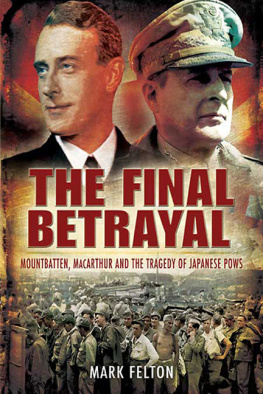
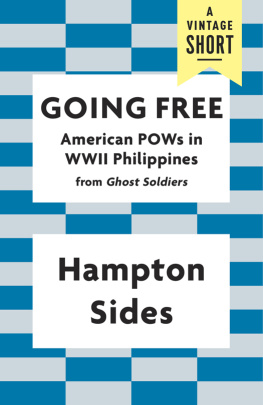
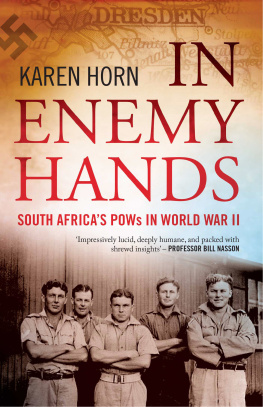
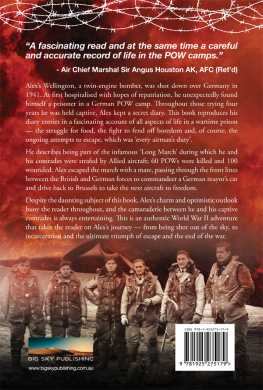
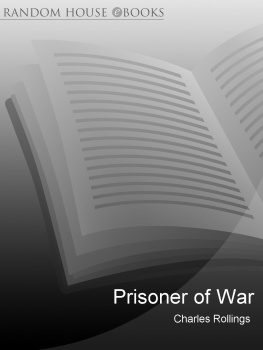
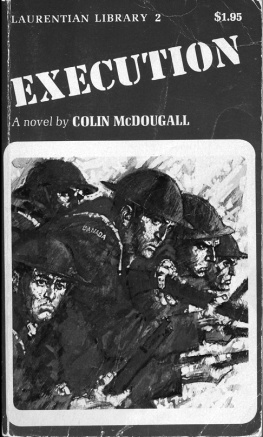
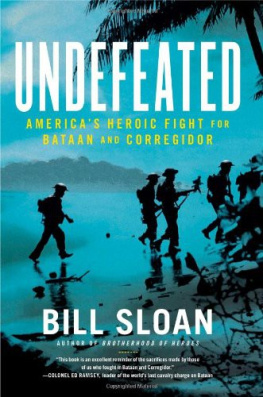


 The paper used in this publication meets the minimum requirements of the American National Standard for Information SciencesPermanence for Printed Library materials, ANSI Z39.481984.
The paper used in this publication meets the minimum requirements of the American National Standard for Information SciencesPermanence for Printed Library materials, ANSI Z39.481984.